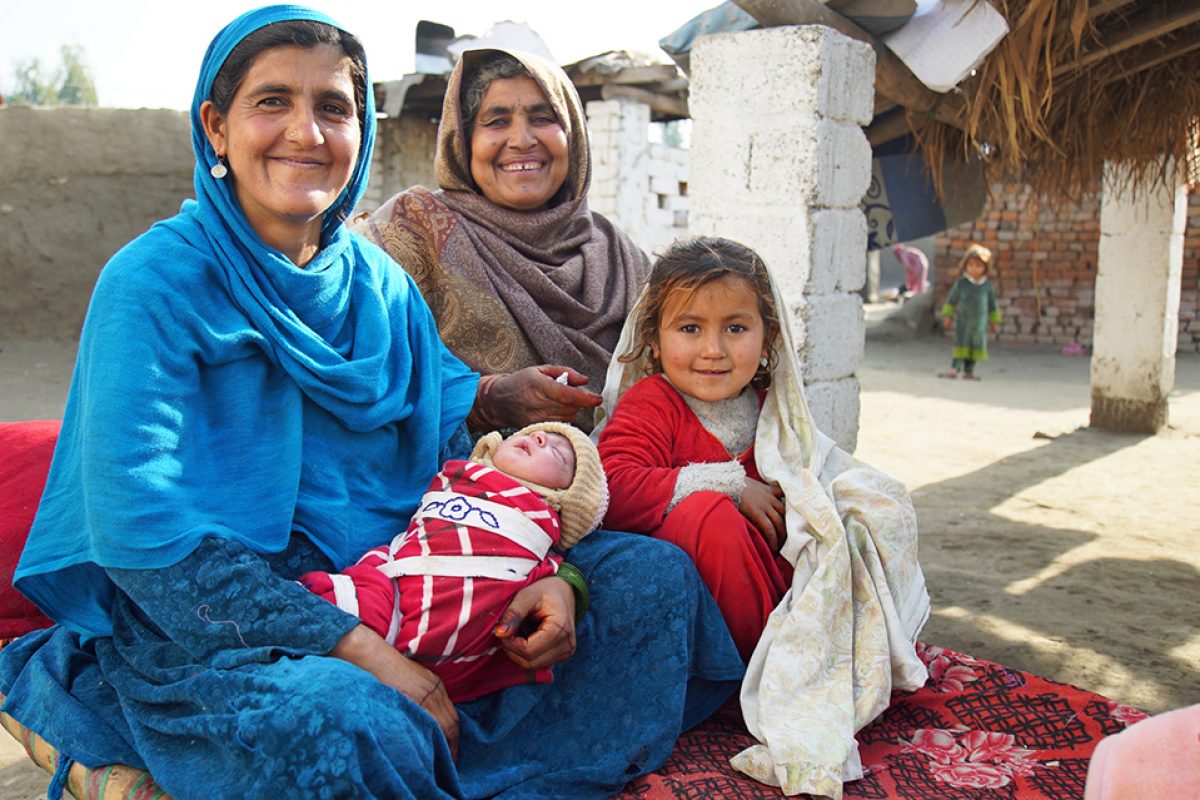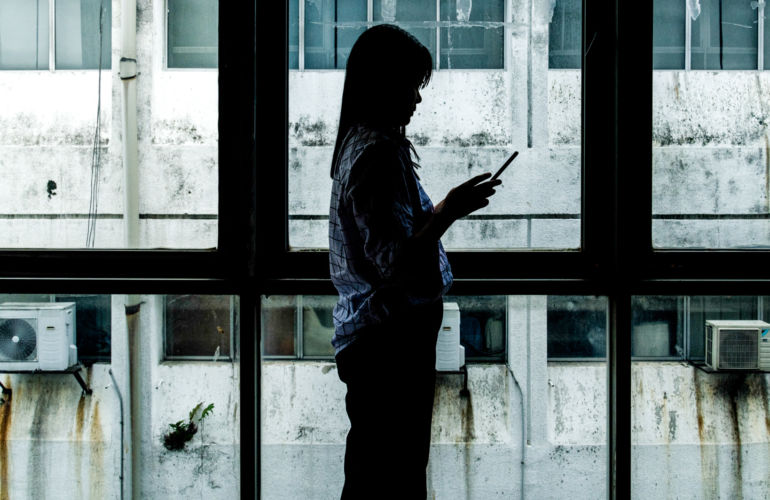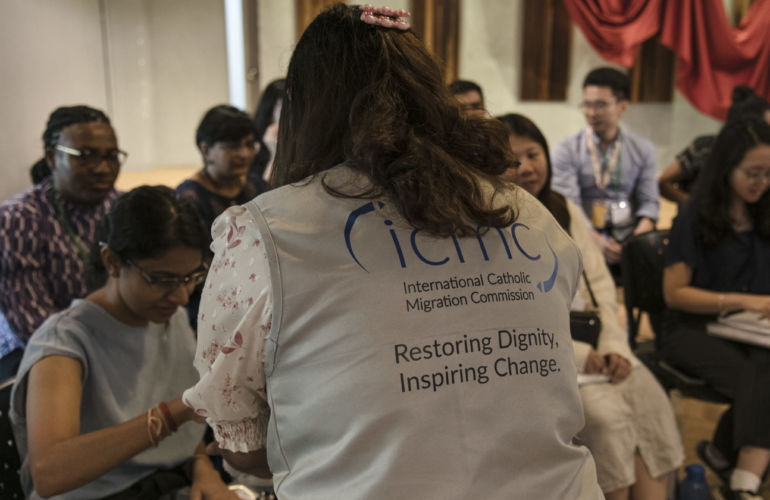Ensuring Safe Childbirth for Rural Women in Pakistan: Palwashay’s Story

For an Afghan refugee in rural Pakistan, giving birth is often a risky endeavor for mother and baby. Since January 2017, the International Catholic Migration Committee has been working with community health agents to reduce mortality rates and improve the well-being of women and children.
When Palwashay learned she was pregnant for the third time she was both excited and nervous. Bitter memories of her first two deliveries surfaced — home births without any formal medical assistance. “I suffered so much … and I nearly died,” she recalls.
Palwashay is a 28-year-old Afghan refugee born in Pakistan. She lives in Khazana camp, near the city of Peshawar. Her experience is quite familiar to Sultan Bibi, a Traditional Birth Attendant who lives in the same camp. Bibi has worked with ICMC for three years, offering safe maternity services for Afghan refugee women like Palwashay.
Most refugee women in Pakistani rural areas will give birth at home; four out of ten of all rural women give birth to their children at home rather than in a health care facility.
Cultural norms often restrict women’s movements outside the home as well as their ability to take independent decisions about their health care. The distance to care centers, a lack of trained female health workers and cost can be additional factors that lead women to deliver their children at home.
Giving birth is a purely private matter in their culture, Bibi adds, which helps to explain why many expectant women choose to stay home. “The hospital facility and staff are considered to be ‘outsiders’ or, in other words, untrustworthy, irrespective of their genders.”
Only slightly more than half of women giving birth in Pakistan are attended by skilled health personnel. The percentage drops to just above a third in rural areas such as the Khyber Pakhtunkhwa region where ICMC works.
Home birth is a practice with often-tragic consequences. Pakistan has one of the highest maternal mortality ratios in South Asia. Some 178 women die of pregnancy-related causes per 100,000 live births. Which is enormous compared to an average of 12 in developed countries and the 2030 UN Sustainable Development Goal target of less than 70.
Sultan Bibi says it is very common for either mother or child to die at an unassisted home delivery. This can be the result of a risky delivery position, a lack of suitable and clean instruments or improper post-natal care and hygiene.
ICMC works with community health staff in camps like Khazana, which was established when millions of refugees flooded across the border to flee war in Afghanistan in the late 70s and 80s. Today, Pakistan hosts more than 1.4 million registered Afghan refugees.
The community health committees aim to make home births safer and improve the overall health of refugee mothers and their children through ante- and post-natal care. Health workers give a range of advice, from infant feeding and breast care and what constitutes good nutrition for the new mother to the importance of personal and home hygiene for the baby’s health and mother’s recovery.
This was important for Palwashay and her husband Alamzeb, a day laborer and taxi driver by night who, like his wife, was born in a Peshawar refugee settlement to parents who fled Afghanistan 40 years ago. During and after Palwashay’s pregnancy, trained health and hygiene promoter Somiya provided information and support.
“[She] told me about danger signs [that can occur] during pregnancy and other such related issues which helped me a lot through the whole process at each and every stage,” Palwashay says.
After Bibi helped Palwashay to safely deliver her daughter, the new mother received a baby kit with hygiene products and infant clothes and was given a schedule for necessary check-ups. A follow-up visit aimed at establishing an immunization schedule. The promotion of anti-malarial nets for sleep and regular monitoring of children’s growth also contributed to improving the newborn’s health.
ICMC support made all the difference to Palwashay for her pregnancy this time around. “I consider myself very lucky for having got proper care and medical assistance in my own house.”
Peshawar is one of six districts in Pakistan’s northwestern Khyber Pakhtunkhwa region in which ICMC has been providing health services since January 2017. These include education, maternal and child care, immunization and counseling on feeding infants and young children. Through its focus on maternal and child care, which included the training of nearly 80 traditional birth attendants and the provision of ante-natal visits and post-natal care, ICMC has ensured that 85% of the nearly 3,400 deliveries recorded in the six districts where it works were monitored by skilled health personnel.
Refugees’ names have been modified to protect their identities.
This story is based on reporting by Sahar Zafar.


